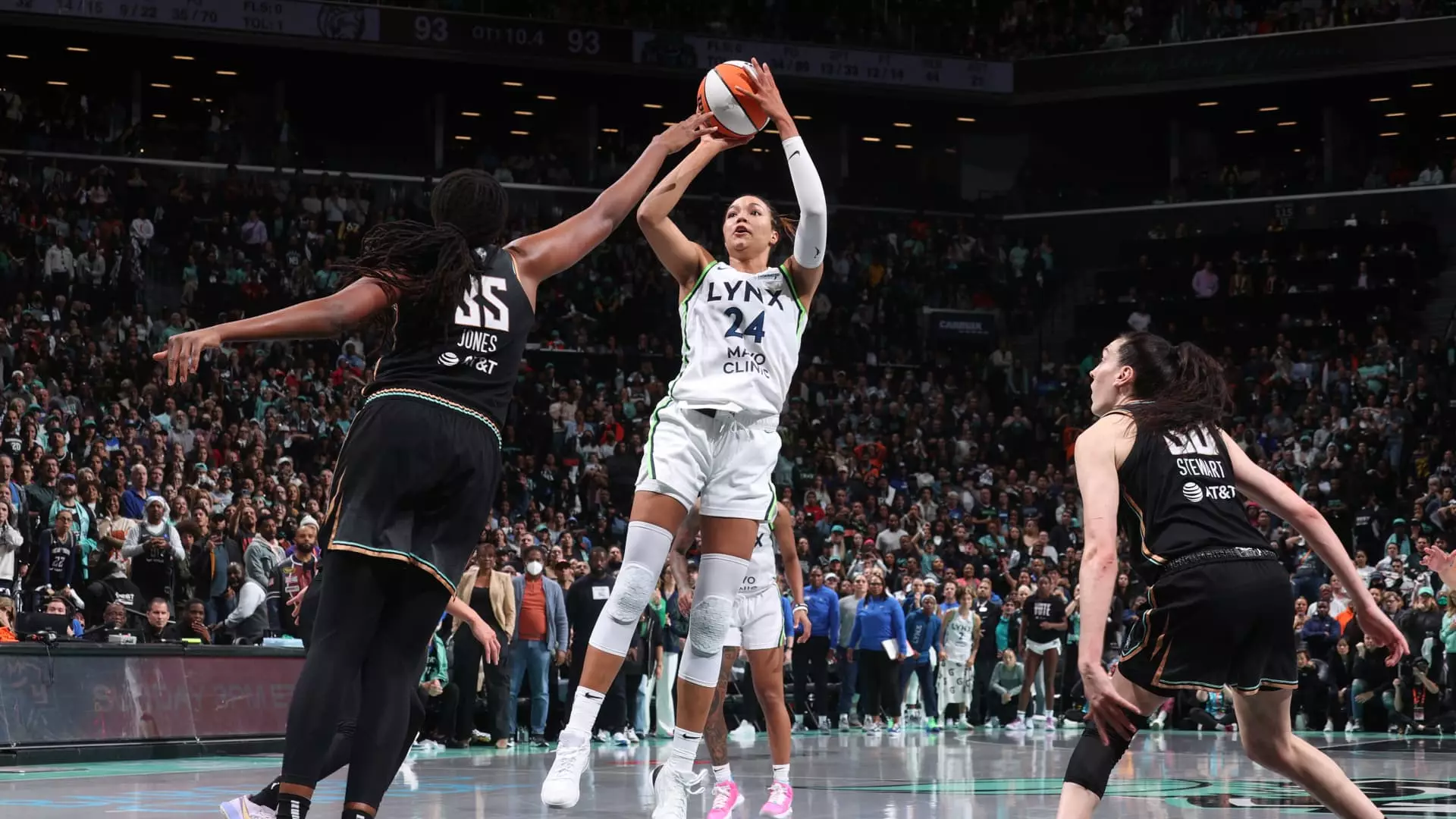The Women’s National Basketball Association (WNBA) is gearing up for a transformative 2025 season that promises to elevate the profile of women’s sports even further. Under the leadership of Commissioner Cathy Engelbert, the league is implementing significant changes that not only acknowledge its rapid growth but also cater to a burgeoning fanbase eager for more basketball action. The expansion of the regular season from 40 to 44 games, alongside a shift in the Finals series format from five to seven games, is not merely an adjustment; it is a strategic move designed to enhance the overall experience for fans and players alike.
Increasing the regular season games means more opportunities for teams to showcase their talent and for fans to connect with their favorites. Engelbert emphasized that this change aligns perfectly with the league’s growth trajectory, which has seen an uptick in viewership and engagement rates. This modified schedule, comprising 44 regular-season games, introduces an invigorating element into the league, ensuring more excitement throughout the season. The adjustments to the playoff format, which now entails a 2-2-1-1-1 structure for the Finals, also support a more competitive spirit by adjusting the hosting rights, encouraging teams to fight even harder for home-court advantage.
Beyond simple numerical changes, these adjustments reach into the realm of strategy, as the format also enhances the drama of the postseason. A longer Finals series allows narratives to develop more fully, giving players and teams the chance to build legacies over extended periods of high-stakes competition. The substantial increase in games reflects not just a response to increased popularity, but also a commitment to elevating the visibility and legacy of women’s sports.
The league isn’t just expanding the number of games; it’s diversifying its landscape with new franchises. The introduction of the Golden State Valkyries as the 13th team marks just the beginning. With plans for unnamed franchises in Toronto and Portland to debut in 2026, the WNBA is rapidly pushing towards establishing a richer, more competitive ecosystem within women’s basketball. These new teams will likely foster local support and draw in new fans, expanding the league’s geographic reach and cultural impact.
The ongoing discussions for a 16th team signify that the WNBA is not merely reacting to its present momentum; it is proactively shaping its future. Engelbert’s strategic foresight places the WNBA at the forefront of women’s sports leagues, ensuring it capitalizes on its current success while responsibly preparing for sustainable expansion. From a business perspective, such growth can enhance media rights and sponsorship opportunities, in turn bolstering the league’s finances.
Despite the excitement, the rapid ascent of the WNBA doesn’t occur without its challenges. The league has not been immune to controversies regarding issues such as racism and online harassment of its players. While Engelbert’s response to such concerns has faced criticism, the clarification of her stance against hate and racism indicates a recognition of the dual realities of sporting triumph and social responsibility that the league faces.
Addressing these sensitive matters openly is crucial as the league grows. The increasing visibility of women athletes brings with it both admiration and backlash, reminding stakeholders of the societal complexities surrounding women’s sports. Engelbert’s comments on the media landscape reveal a growing interest in women’s sports from leaders like Jeff Zucker and Patrick Whitesell, suggesting that the spotlight on women’s sports could encourage a shift in cultural perceptions, fostering a more supportive environment for female athletes.
As the WNBA prepares for its 2025 season, the implications of these changes extend beyond basketball courts. The league is positioning itself as a pioneer in women’s sports, advocating not only for increased visibility and funding but also for a broader recognition of the athletes who inspire many. As the excitement of this new season approaches, one fact remains clear: women’s basketball is on the cusp of an exhilarating new chapter that could redefine the future of not only the WNBA but women’s sports as a whole. The upcoming seasons will not only challenge the current narratives of competition and growth but could also inspire future generations of female athletes to dream even bigger.

